When is Land of the Wild: Secrets on TV?
Land of the Wild: Secrets airs on BBC One Wales on Wednesday 31 March at 7.30pm, and will be available on BBC iPlayer after.
What is Wales: Land of the Wild: Secrets about?
A follow-up to the Wales: Land of the Wild series and the nocturnal wildlife special, this one-off episode takes an even closer look at Wales’ fascinating fauna, using a variety of camera techniques to slow-down, speed-up, and zoom-in on a cast of curious creatures.
It is narrated by actor Michael Sheen, whose velvet Welsh tones add another layer of comfort to what is already a cosy show. “Wales is a land of rivers” he purrs at the start, and this is what much of the hour centres around, taking us on a journey from their source in the wild uplands, down through the post-industrial valleys to the fertile low-lands, and finally to the coast.
It is a story of contrasts, from sweet-toothed badgers to tiny ingenious caddis flies, facilitated by innovative filming technologies. In one scene an underwater lens gives us a rare glimpse of what lies beneath the surface of Wales’ rivers, revealing surprising alien landscapes. The frequent referrals to these techniques, as well as numerous shots of camera lenses can, however, feel heavy-handed, and perhaps only truly exciting to photography enthusiasts.
A further contrast on show is between the rugged wild and manicured landscapes. We are taken into our own back gardens and shown some of the fascinating behaviours that take place around our bird feeders. What this programme does very well is in making the mundane magical, elevating creatures we see everyday, from dragonflies to pigeons, to the heights of the rare and exotic.
A well-crafted original score, and some gorgeous wide landscape shots, add to this sense of majesty. The show also feels pleasingly Welsh, as we learn some interesting facts about the country’s industrial past, meet some local wildlife enthusiasts, and learn the welsh name for badger (moch daear or earth-pig). For the locked-down and nature starved, this programme feels like a warm cwtch.
Who is narrating Land of the Wild: Secrets?

Land of the Wild: Secrets is narrated by renowned Welsh actor and producer Michael Sheen. Raised in Port Talbot, Sheen has appeared in a variety of stage roles, TV programmes and films, including playing Tony Blair in the 2003 TV-movie The Deal and again in the 2006 film The Queen, David Frost in Frost/Nixon, the title role of Hamlet, and Aziraphale in the adaptation of Good Omens.
Which species feature in Land of the Wild: Secrets?
This episode features a wide variety of species and habitats, from the tiny cased caddisflies and salmon parr living in the rivers, a beautiful marsh fritillary in a wildflower meadow, to garden birds
1
Red squirrel (Sciurus vulgaris)
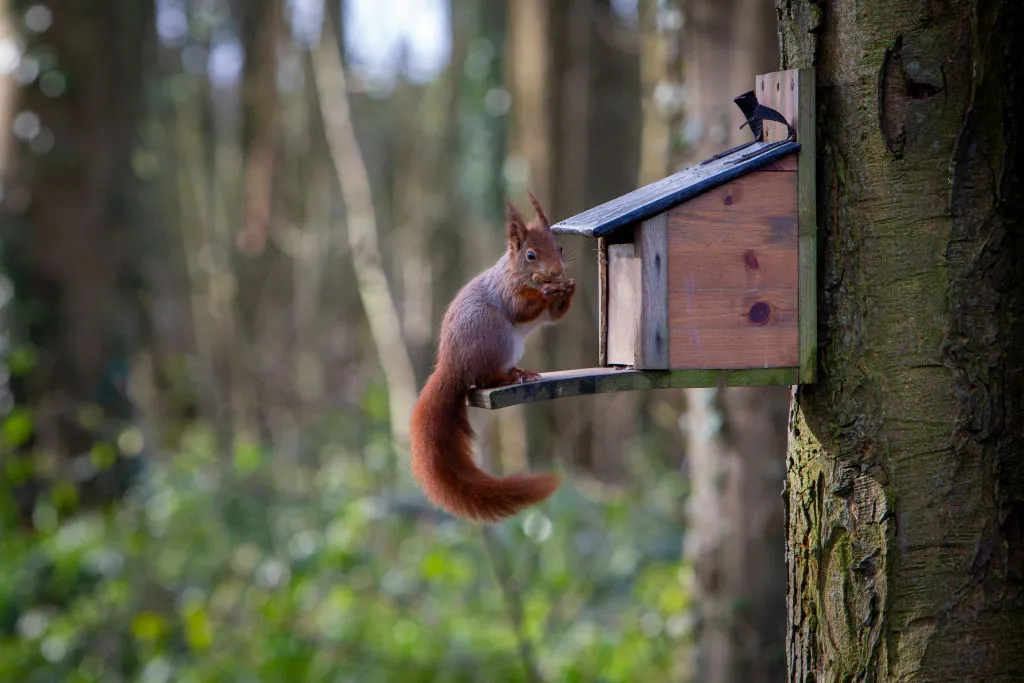
The only native species of squirrel found in the UK and Ireland, red squirrels have distinctive ear tufts, particularly in winter, and bushy tails. Their range in the UK is now restricted to a number of populations in Scotland, the Lake District, Northumberland, parts of Wales, Brownsea Island and the Isle of Wight. One of the greatest threats to red squirrels is the non-native grey squirrel, which can outcompetes red squirrels and can carry squirrelpox. This virus can be carried by grey squirrels without causing any symptoms, but is usually fatal to red squirrels.
Learn more about red squirrels:
2
Peregrine falcon (Falco peregrinus)
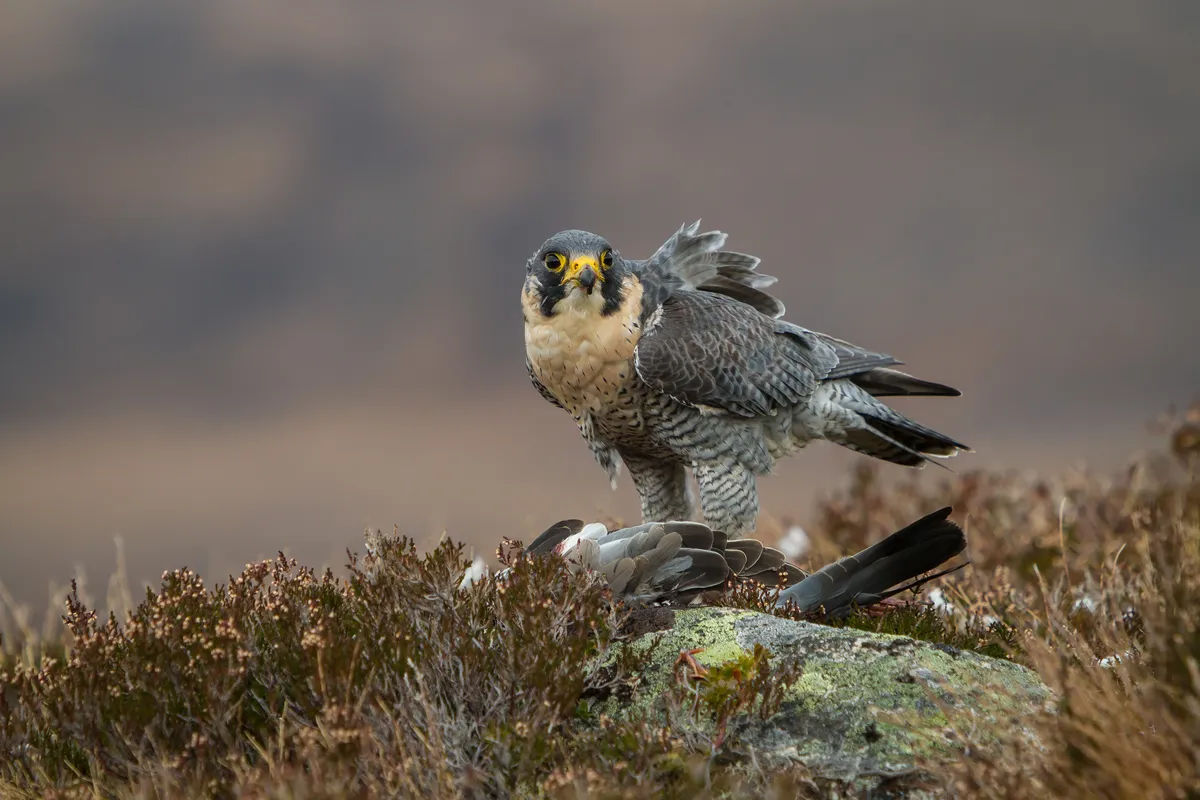
The largest falcon found in the UK and Ireland, the peregrine falcon (sometimes shortened to just the peregrine) can be found on every continent on Earth except Antarctica and in a wide variety of habitats. It can reach over 320km/hr during its high speed dive to catch prey, making it both the fastest bird in the world and fastest animal.
It has historically been persecuted in the British Isles, but is now making a comeback and can even be seen nesting in a number of cities where tall structures, such as cathedrals, act as urban substitutes for the cliff edges it would normally nest on. A number of nests have live webcams streaming the progress of the nests.
3
European badger (Meles meles)
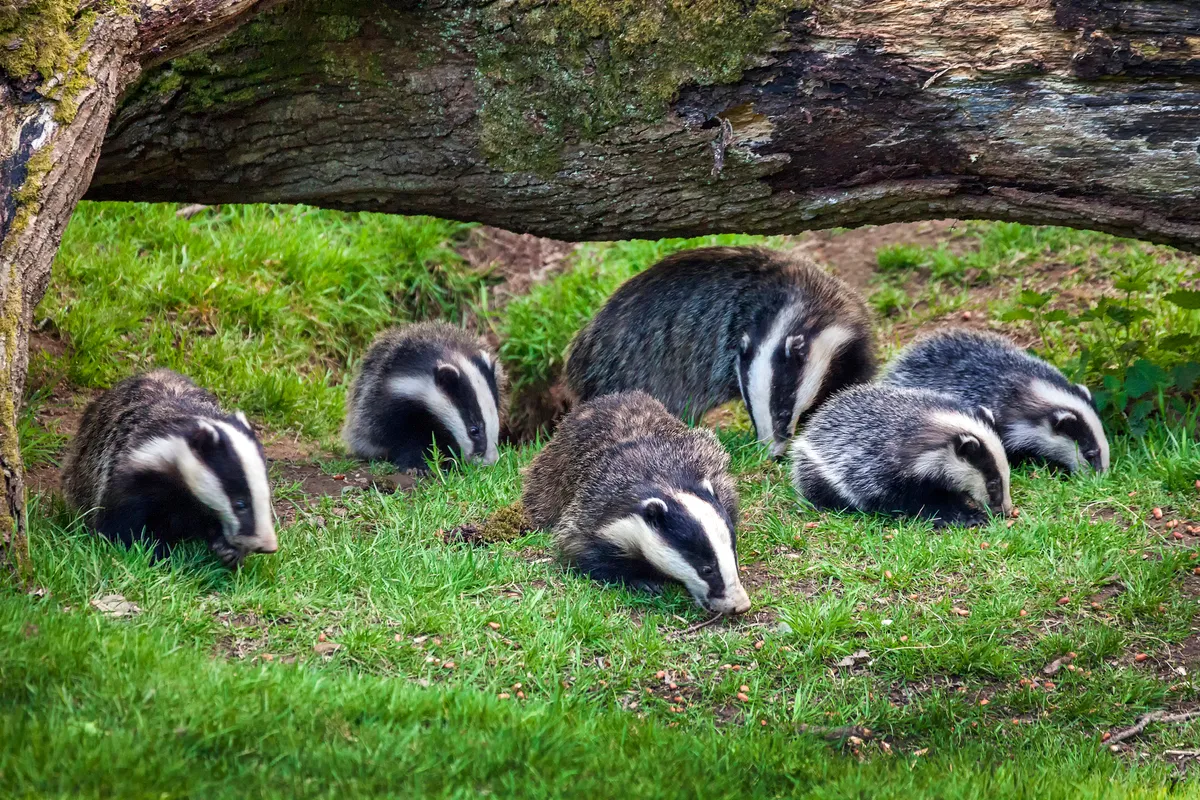
One of the most distinctive animals in the British Isles with its black and white facial markings, the badger is widely distributed across the UK and Ireland. Males can generally be distinguished from females by their broader, more domed heads, fuller cheeks and thicker necks. Tails are a less reliable guide – males typically have thinner, whiter tails; females shorter, broader ones.
The European badger's common name, Meles meles, is a tautonym, where the genus and specific name are the same.
Learn more about badgers and other mustelids:
4
Common kingfisher (Alcedo atthis)
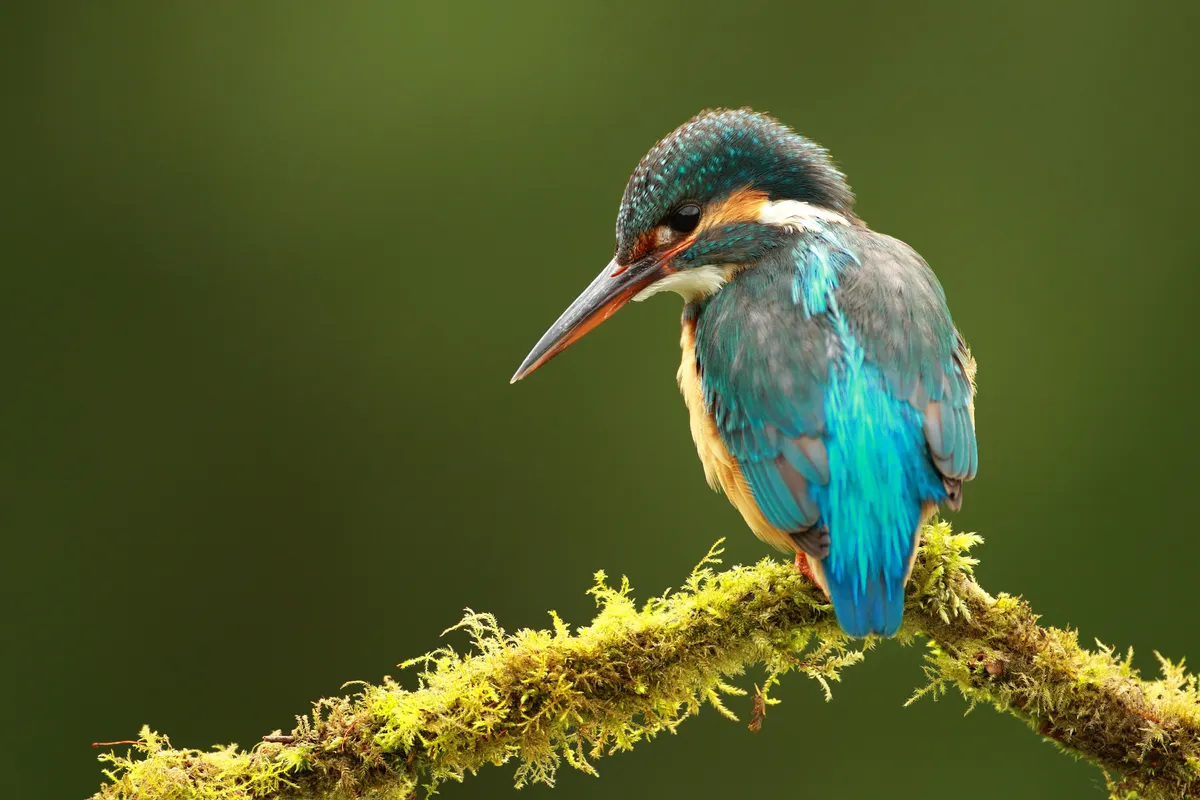
The common kingfisher is the only kingfisher species found in the British Isles. Although it is brightly coloured and has a distinctive call, kingfishers can be quite difficult to spot as they are relatively small and can be hidden by tangles of branches hanging over the river's surface. Kingfishers nest in burrows, usually in soft riverbanks. The nest tunnels can be up to 140cm long, ending in a nesting chamber, and can take many days to create.
Learn more about kingfishers and other river wildlife:
5
Garden birds
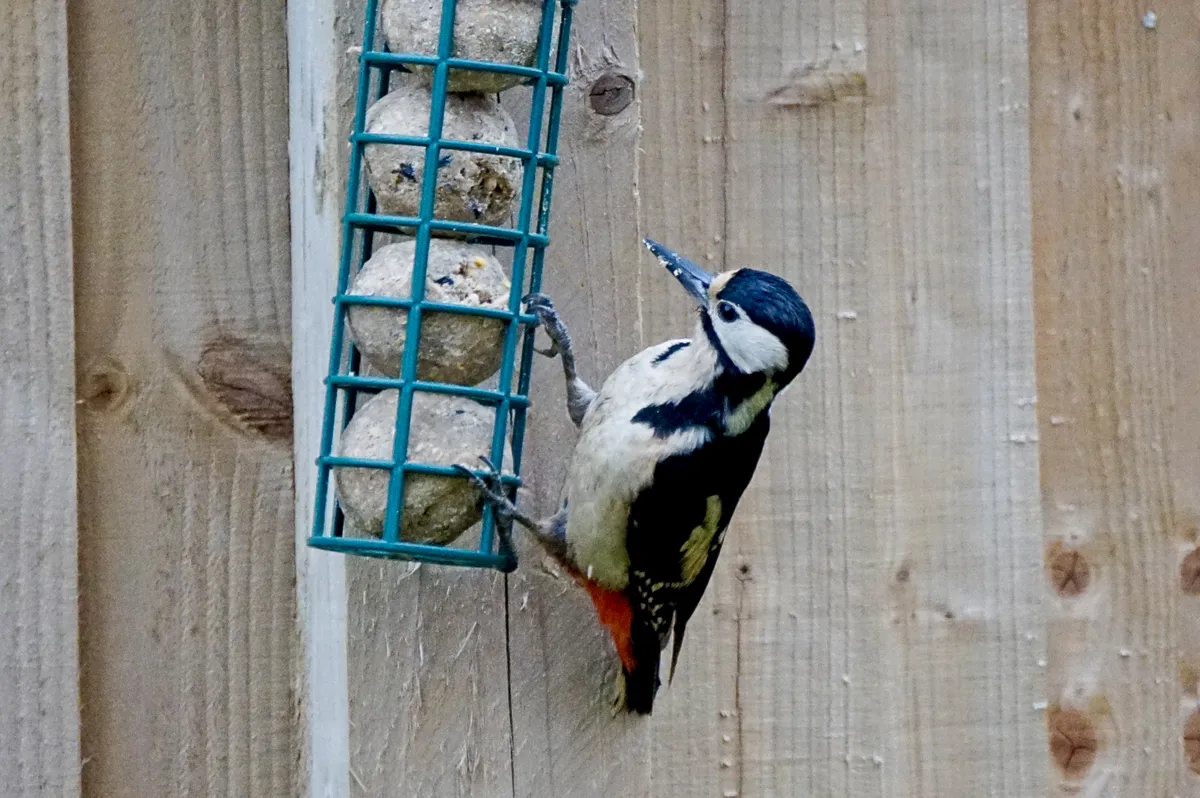
Garden bird feeders can attract a range of species, from the diminutive blue and coal tits, to the impressive great spotted woodpecker.
Learn more about caring for garden birds:
6
Marsh fritillary butterfly (Euphydryas aurinia)
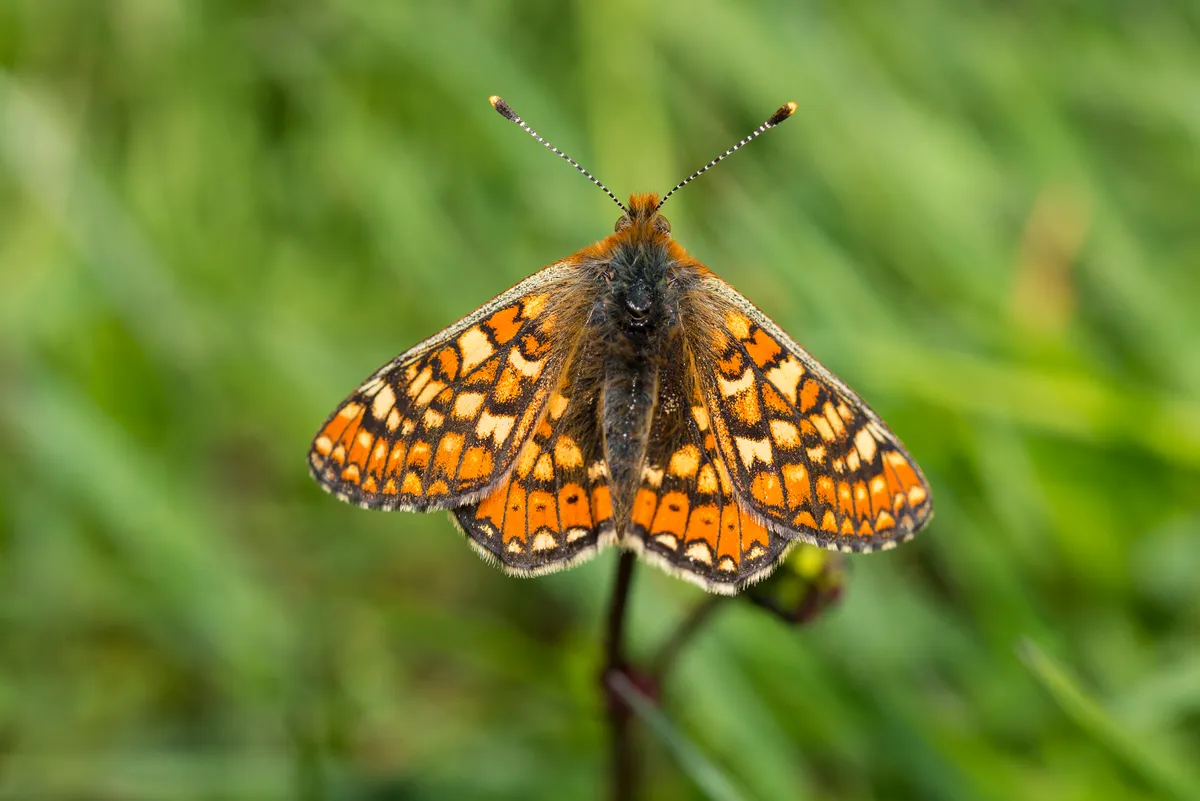
The marsh fritillary butterfly is a threatened species, both in the UK and Europe. Its wing patterning resembles a beautiful stain glass.

